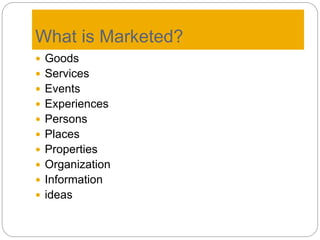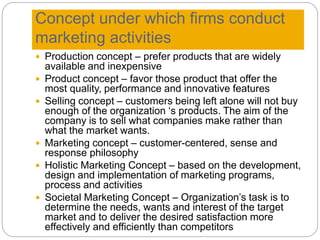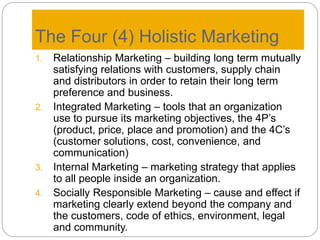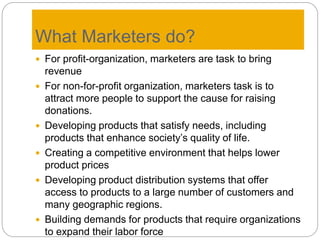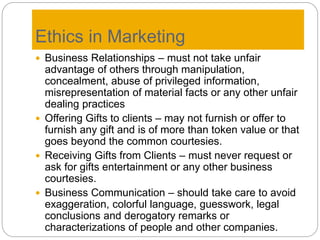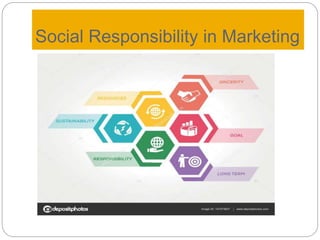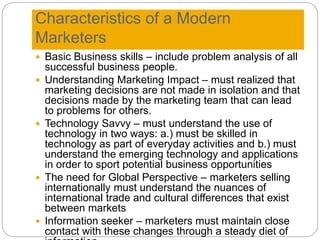The document provides an overview of marketing, defining key concepts such as the social process of exchanging value and the strategies marketers use to meet customer needs. It emphasizes the importance of ethics, social responsibility, and modern marketing characteristics, including the necessity for technology savviness and a global perspective. Additionally, it discusses the 4Ps of marketing and the holistic marketing approach to create better customer relationships and achieve organizational objectives.
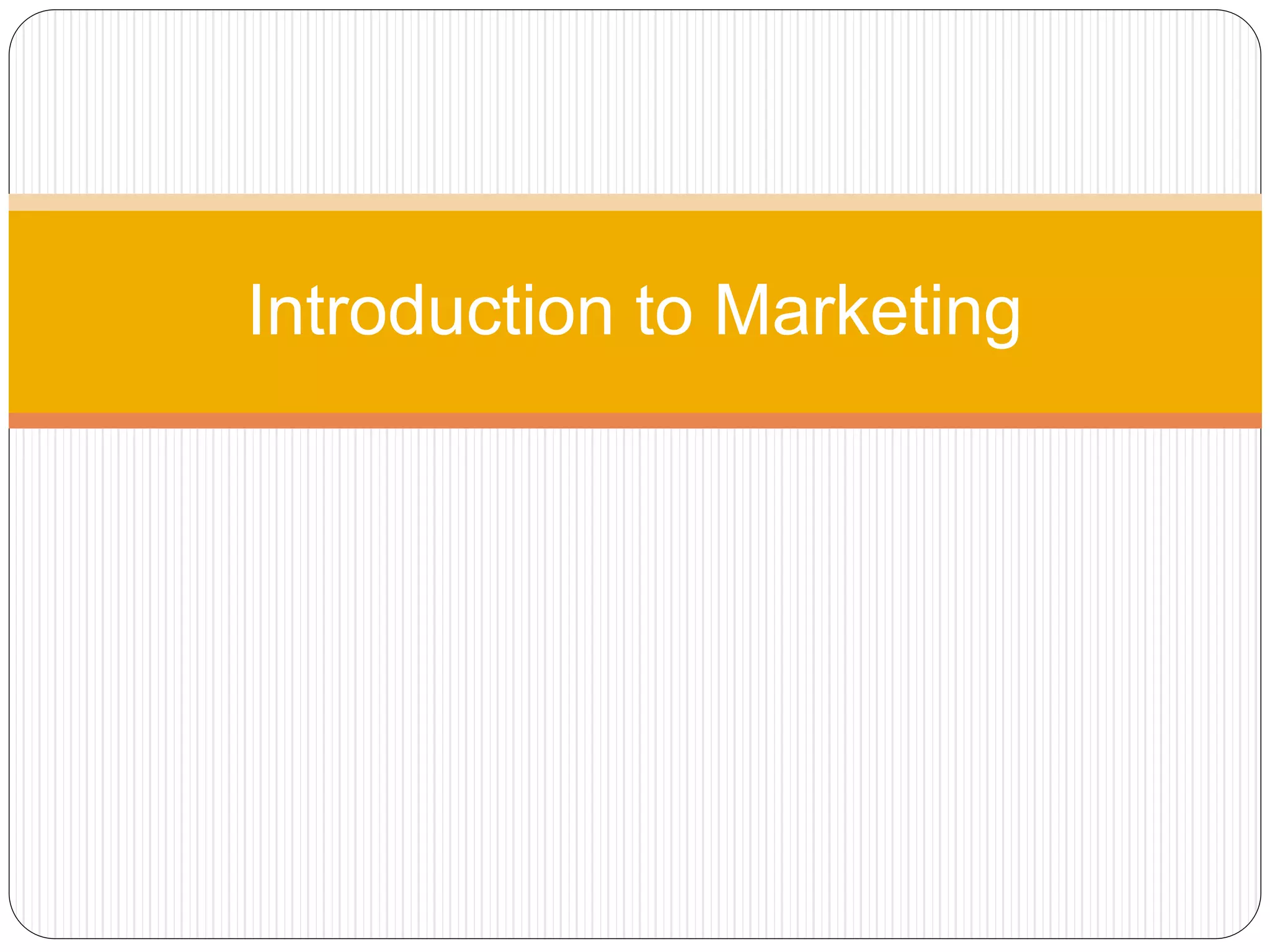
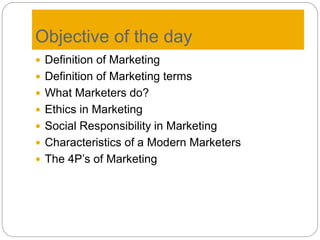
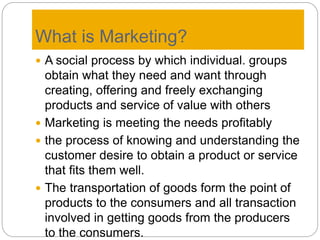
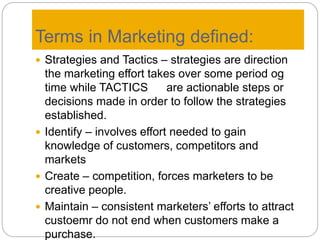
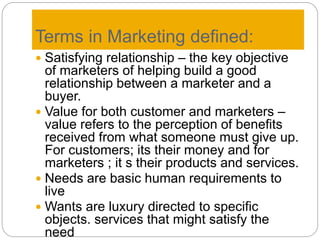
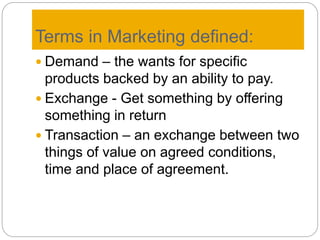
![Terms in Marketing defined:
Target market – consist of customers
identifiesd as possessing needs the
marketer believes can be addressed by the
marketing efforts.
Products – cosist of tangible or intangible
solution to the market’s needs
Promotion – a means for communicating
information aobout the marketing
organization’s products to the market
Distribution – the methods used by the
marketer that enable the market to obtain
products]
o](https://image.slidesharecdn.com/introductiontomarketing-201019050838/85/Introduction-to-marketing-7-320.jpg)
